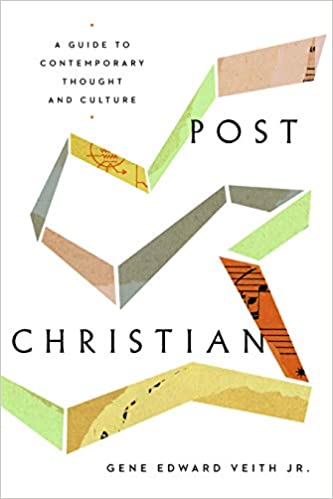A Brief Book Summary from Books At a Glance
By Benjamin J. Montoya
About the Author
Gene Edward Veith Jr. (PhD, University of Kansas) provost and professor of literature emeritus at Patrick Henry College. He previously worked as the culture editor of World magazine. Veith and his wife, Jackquelyn, have three grown children and seven grandchildren.
Introduction
No one questions that our world has changed. The events that occurred on 9/11 remind us of that. But, just how much has our world changed? From an intellectual standpoint, we are entering a time of post-Christian thinking. That does not mean that Christianity no longer exists, but what it does mean is that thinking based on a Christian foundation is long gone. What has taken its place? What are the implications for our thinking in several key areas because of this change? Consider this book and its summary to learn more.
Table of Contents
Introduction
Part 1 Reality
Chapter 1 Constructing Our Own Worlds: The Ptolomaic Counterrevolution
Chapter 2 Knowing Nature: The Dominance of Science
Chapter 3 Mastering Nature: The Achievements of Technology
Chapter 4 Recovering Reality: The Story of Kant’s Neighbor
Part 2 The Body
Chapter 5 The End of Sex: The Exaltation of Barrenness
Chapter 6 Repudiating the Body: Engineering Children and Oneself
Chapter 7 Sexual Counterrevolution: Toward a Theology of the Body
Part 3 Society
Chapter 8 Culture and Anticulture: Society without Community
Chapter 9 Power Politics and the Death of Education: From Relativisim to Absolutism
Chapter 10 Rebuilding Civilization: Options for the Dark Ages
Part 4 Religion
Chapter 11 Spiritual but Not Religious: The Religion of the Nones
Chapter 12 Religious but Not Spiritual: The New Gods
Chapter 13 Post-Christian Christianity: Desecularizing the Church
Conclusion: Toward the Postsecular
Part 1 Reality
Chapter 1: Constructing Our Own Worlds: The Ptolomaic Counterrevolution
The world we live in now consists of different versions of reality based on with whom you speak. Based on a Christian understanding of how we know things, our knowledge requires correspondence to reality—to objects we see and can observe. But now, the emphasis has shifted away from that to a constructivist view of reality. This view insists that we each create our own reality, and that the world around us must conform to our view of reality. How did this shift in our world even happen?
Throughout the development of intellectual history, there have been seismic shifts in people’s thinking. One of the greatest intellectual shifts is that of the Enlightenment. In this shift, human reason was elevated above all. Following the Enlightenment, Immanuel Kant’s thinking was tremendously influential. Contrary to popular thought, he did believe in objective truth; however, he did not believe we could ever know it. Instead, his thinking is what has given rise to the kind of constructivism we know today. Today people are taught, even in schools, to construct their own version of reality. Seriously. Even children in some schools are taught that they need to write their own textbooks.
How does this major shift in thinking affect the rest of how we understand the world? The next chapters will consider these topics further.
Chapter 2: Knowing Nature: The Dominance of Science
Science is a discipline through which we understand nature, or, from a biblical perspective, creation. God created everything through using his infinite intellect, and we see order throughout creation. Science is also known for having a scientific method to observe reality, make hypotheses based on that observation, and then test the hypotheses accordingly. So, how, then, does this new line of thinking fit with what science has shown?
Part of the difficulty that this new line of thinking has is that although science cannot speak into the realm of religion, primarily because it is not something observable in the same sense that nature is, that many people today suppose that science has disproven religion. After the dawn and widespread influence of Charles Darwin’s theory of evolution, many people believed that Christianity received a mortal blow from science. That is not true, of course, but remember, people’s perception becomes their reality, according to this new line of thinking.
[To continue reading this summary, please see below....]The remainder of this article is premium content. Become a member to continue reading.
Already have an account? Sign In
